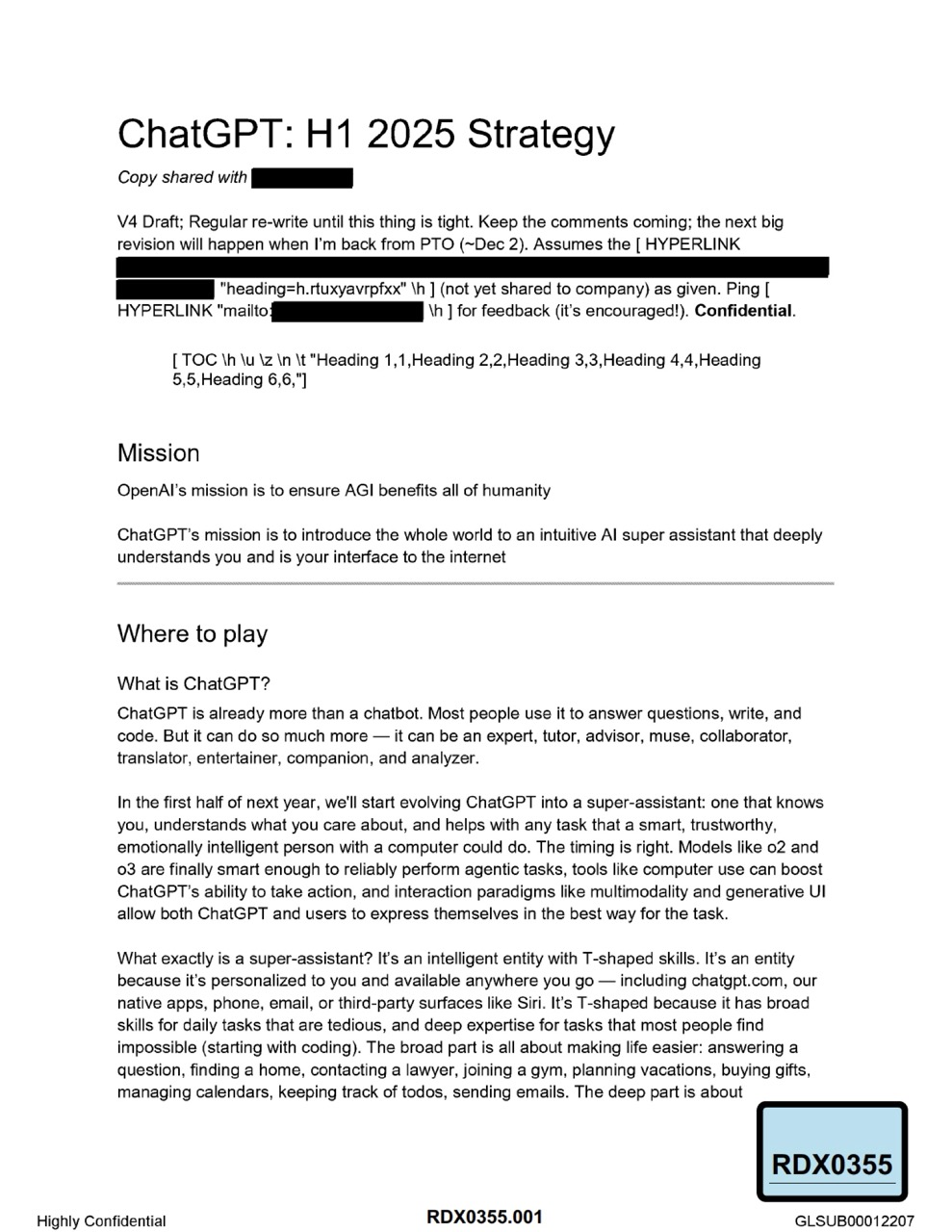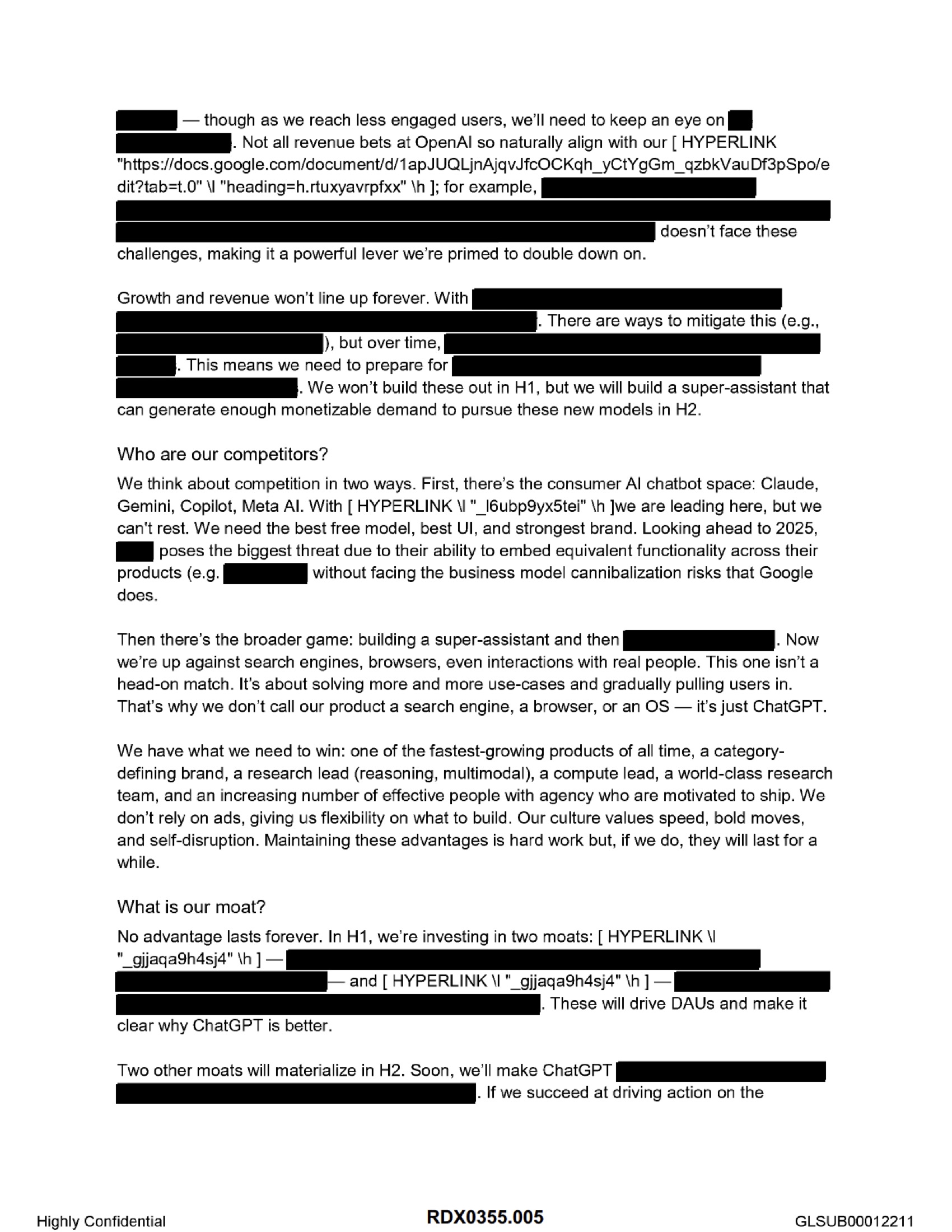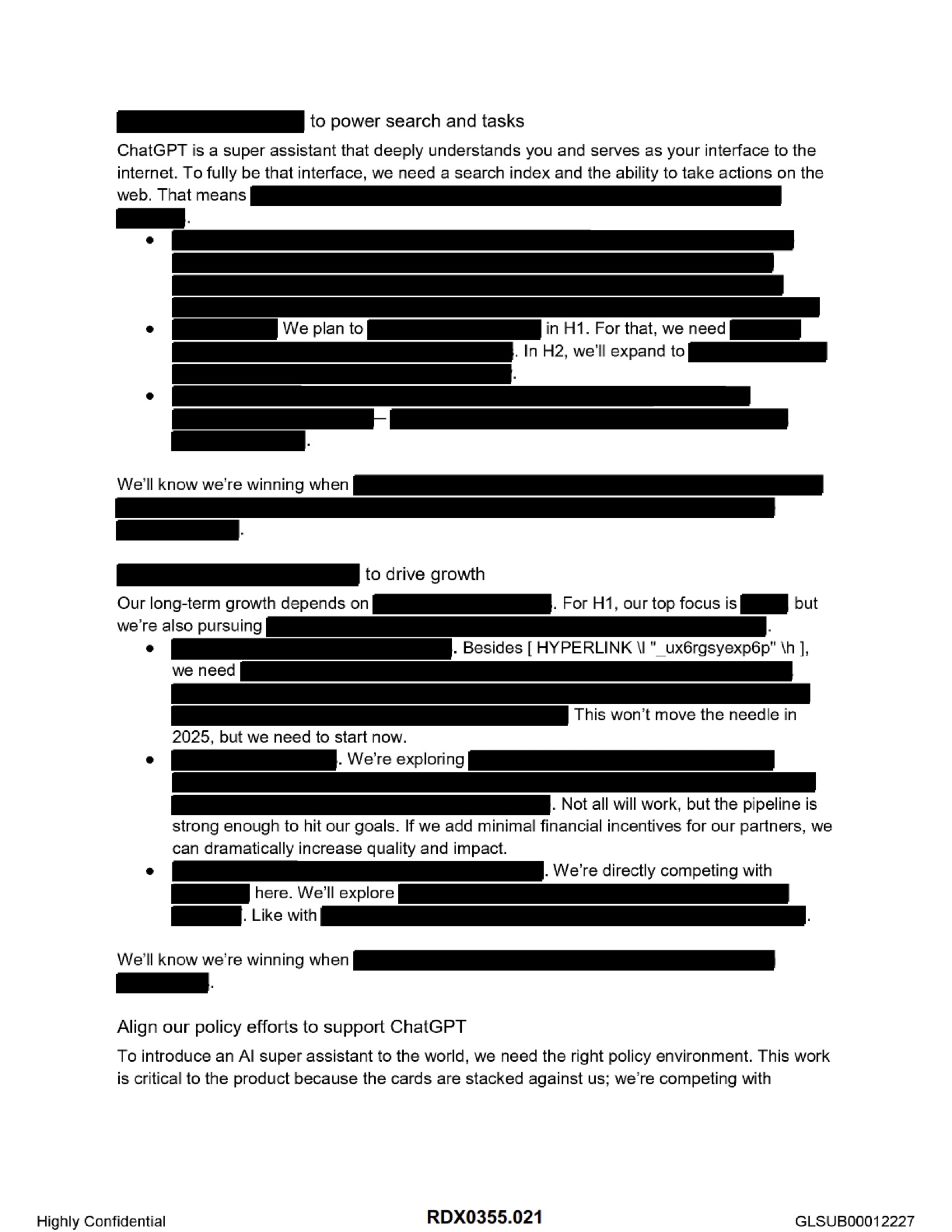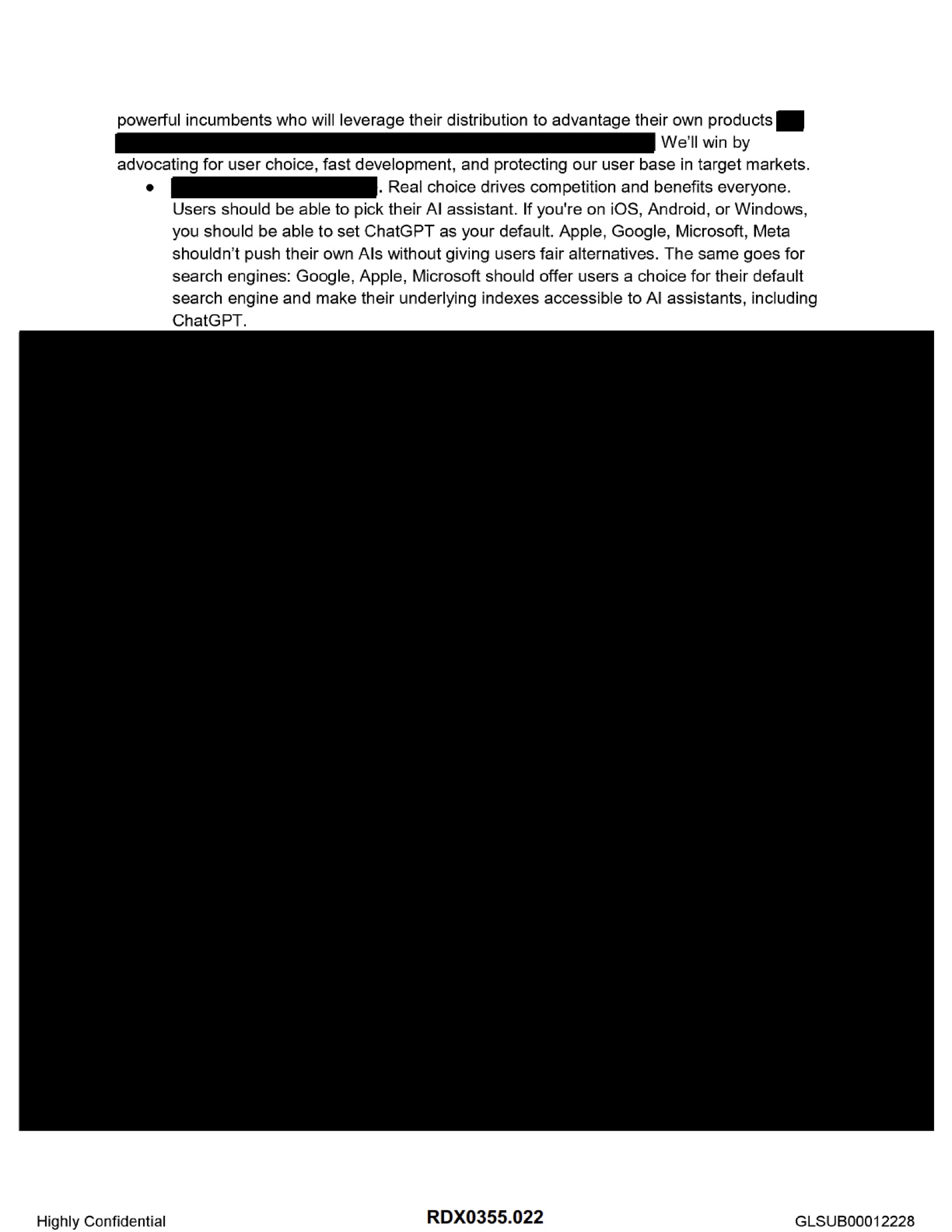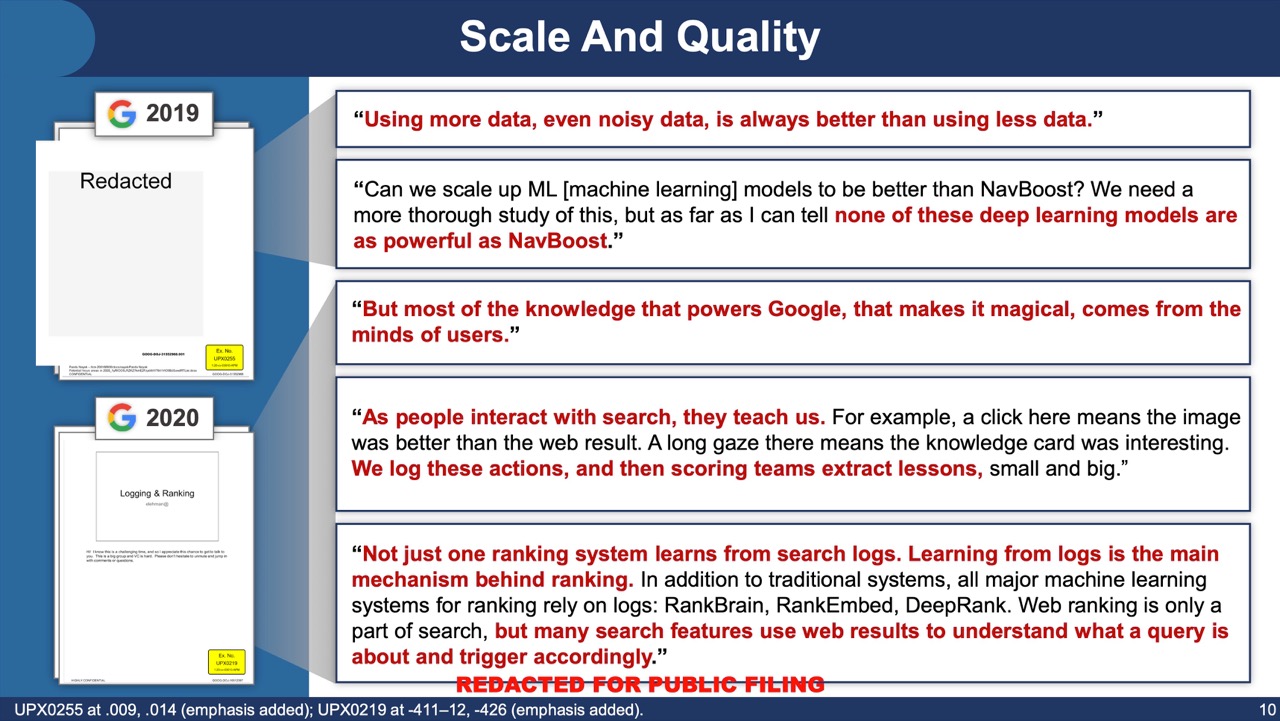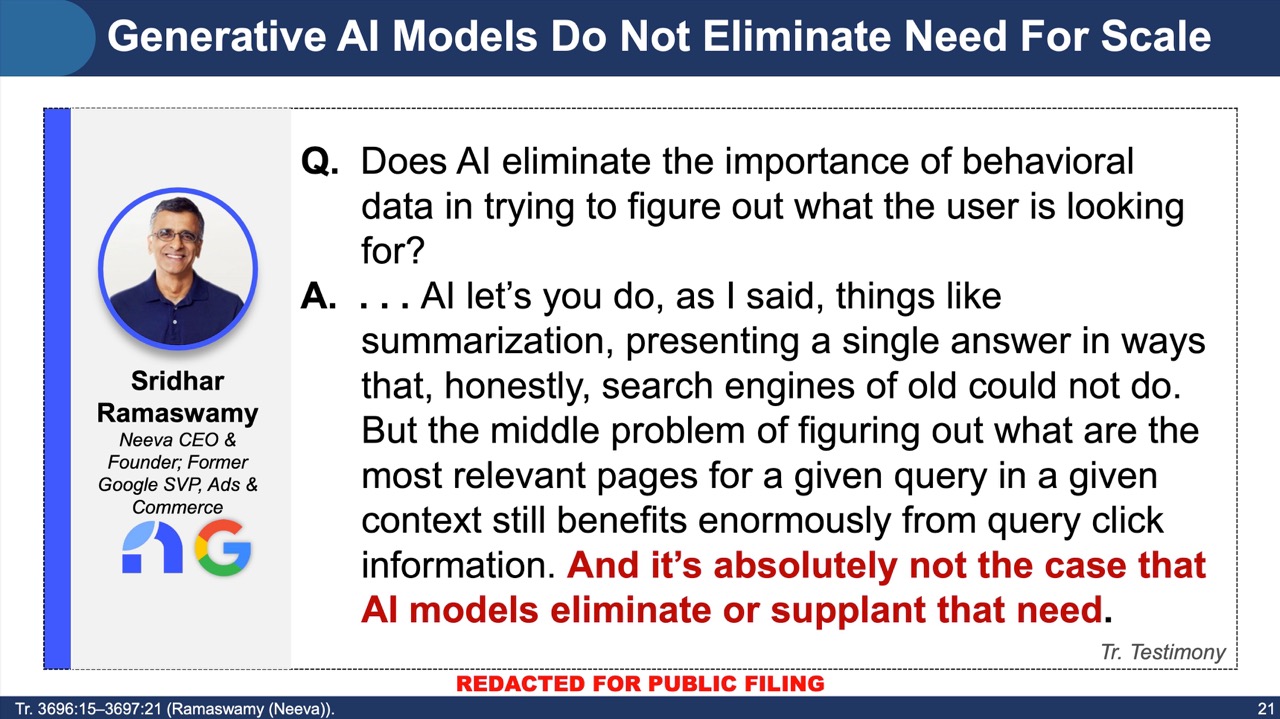AI Summary
An internal OpenAI strategy document for 2025 reveals plans to evolve ChatGPT into a "super-assistant" with broad and deep "T-shaped skills," capable of performing agentic tasks and personalized interactions across platforms. This ambitious shift aims to generate revenue to fund more advanced AI models, with OpenAI surprisingly identifying Meta, rather than Google, as its primary long-term competitor due to Google's potential business model cannibalization risks.
A recently surfaced internal strategy document from OpenAI reveals the company's ambitious blueprint for 2025: transforming ChatGPT from a simple chatbot into what they call a "super-assistant." The
confidential memo, disclosed through the ongoing
U.S. v. Google antitrust case, offers an unprecedented look at how OpenAI plans to compete with tech giants and reshape how we interact with digital tools.
The T-Shaped Assistant Revolution
OpenAI's vision centers around creating what they describe as an "intelligent entity with T-shaped skills." Think of it like a human expert who has broad competence across many areas but deep expertise in specific domains. The company believes their latest models, including o3 and o4 (formerly called o2 and o3), are finally sophisticated enough to handle what researchers call "agentic tasks" – AI that can actually do things for you, not just answer questions.
The broad skills will handle life's tedious tasks:
answering questions, finding homes, contacting lawyers, joining gyms, planning vacations, buying gifts, managing calendars, tracking todos, sending emails. The deep expertise will tackle complex challenges that stump most people, starting with advanced coding projects.
What makes this different from existing virtual assistants is the personalization aspect. OpenAI envisions an assistant that knows you personally and follows you everywhere – from ChatGPT.com to native apps, your phone, email, and even third-party platforms like Siri.
The Economics Behind the Strategy
Perhaps most revealing is OpenAI's frank admission about their business model challenges. The document states that "growth and revenue won't line up forever," acknowledging a fundamental tension in AI development: the most impressive capabilities often require the most expensive computing resources.
Their solution is strategic timing. Focus first on building super-assistants that can generate substantial monetizable demand in the first half of 2025, then use that revenue to fund more expensive AI models in the second half. It's a calculated bet that people will pay for AI that actually does things rather than just provides information.
This approach reflects a broader industry reality. The artificial intelligence industry in 2025 will be defined by the shift to AI agents that move beyond answering questions to completing tasks in the real world, as OpenAI's product leadership has publicly confirmed.
An Unexpected Competitor Landscape
The document reveals OpenAI's surprising take on competition. While many assume Google poses their biggest threat, OpenAI actually considers Meta their primary long-term rival. The reasoning is counterintuitive but strategic: Google faces "business model cannibalization risks" when it comes to AI-powered search, since better AI answers could reduce the ad-supported search queries that fund their business.
Meta, by contrast, doesn't have this constraint. Meta plans to release a standalone Meta AI app that could compete with offerings from rivals like OpenAI and Alphabet's Google, without worrying about cannibalizing existing revenue streams. This freedom makes Meta potentially more aggressive in AI development. OpenAI categorizes competition into two layers:
- The chatbot space: Claude, Gemini, Copilot, and Meta AI competing for conversational AI users
- The broader game: Building super-assistants that compete with search engines, browsers, and even human interactions
The second category represents OpenAI's real ambition. They're not trying to build a better search engine or browser – they want to make those categories obsolete by creating something entirely new.
The Moat Strategy
OpenAI plans to build competitive advantages through four key moats, though the document redacts specific details about two of them planned for the first half of 2025. The strategy acknowledges that "no advantage lasts forever," but aims to create lasting differentiation.
Two additional moats will emerge in the second half of 2025, focusing on making ChatGPT more capable of taking real-world actions. The company believes their advantages include having one of the fastest-growing products ever, a category-defining brand, research leadership in reasoning and multimodal AI, computational advantages, and a culture that values speed and bold moves.
Crucially, OpenAI doesn't rely on advertising revenue, giving them flexibility in product development that ad-dependent competitors like Google might lack.
The Policy Battleground
The document reveals how seriously OpenAI takes regulatory and policy challenges. They're explicitly advocating for user choice in AI assistants, arguing that people should be able to set ChatGPT as their default assistant on iOS, Android, or Windows, just as they can choose default browsers or search engines.
This represents a direct challenge to platform owners like Apple, Google, and Microsoft, who OpenAI argues "shouldn't push their own AIs without giving users fair alternatives." The company wants access to underlying search indexes from major platforms to make their AI assistant more capable.
It's a familiar playbook – similar to arguments made during the browser wars and search engine competition battles of previous decades.
What This Means for Users
This internal strategy document offers a rare glimpse into how AI companies think about competition and growth in an industry moving at breakneck speed. OpenAI's approach suggests the next phase of AI development won't just be about better chatbots – it's about fundamentally changing how people interact with technology.
If OpenAI executes this strategy successfully, the changes for users could be dramatic. Instead of juggling multiple apps and services for different tasks, you might interact primarily with a single AI assistant that understands your preferences, handles routine tasks automatically, and can tackle complex projects that would typically require specialized knowledge.
The timeline is aggressive. During its first
OpenAI DevDay event in San Francisco, CEO Sam Altman said "2025 is when agents will work," and the company demonstrated an early example of the potential capabilities of agents by having a voice assistant make a call and order strawberries on its own.
But the transition won't be immediate or seamless. OpenAI acknowledges they need to reach less engaged users while maintaining their core audience, build new monetization models, and navigate complex policy challenges with powerful incumbent platforms.
Recent Posts



